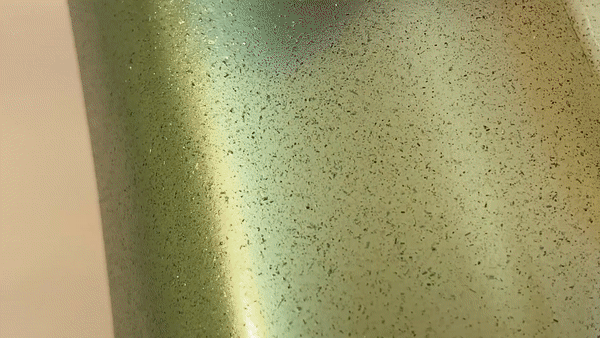Seaweed-Based Packaging for People and the Planet
One of seaweed’s superpowers is that it has so many uses–it’s the soy of the sea without all the downsides. Seaweed can be used in an array of different products ranging from food and animal feed to soil amendments to bioplastics. The use of non-food grade seaweed expands market opportunities for ocean farmers and provides raw materials for entrepreneurs to develop alternatives to fossil fuel-based plastics like straws and packaging. With nearly 8 million metric tons of plastic thrown into the ocean each year, turning regeneratively ocean-farmed seaweed into plastic alternatives benefits both people and the planet.
Co-Founder and CEO Julia Marsh launched the biomaterials company Sway in 2020 to address the global plastics problem at scale through regenerative design. Julia is a designer with more than a decade of experience building brand and packaging systems for consumer goods companies. She set out on a mission to identify a biobased alternative that could be both beautiful and practical. Sway’s goal is to offset the social and ecological harm of petroleum-based plastics by developing seaweed-based replacements that support healthy ocean ecosystems and thriving coastal communities.
“We hope to bring about a benevolent materials revolution, fueled by materials that give more than they take. Seaweed-based materials enable true biological circularity, from sea to soil,” says Julia.
Sway specializes in designing materials that can integrate seamlessly with existing commercial manufacturing and packaging infrastructure to ensure the rapid and widespread adoption of this material throughout scaled value chains. In particular, they’re targeting a home-compostable one-to-one replacement for thin-film packaging–a plastic format important in many industries including food and e-commerce. “We can’t ‘design away’ the need for thin-film plastic,” says Sway Partnerships and Impact Lead, Russell. “We rely on flexible packaging for hygiene, food safety, transportation, and so much more.”
Plastic replacements have the potential to be a high-value and high-volume market for seaweed with a sizable demand. At this juncture in the growing seaweed industry, Sway values building–and prioritizing–supply chains that actively support small- and medium-scale farms that breathe life back into our planet. “As we chase the environmental benefits of seaweed, we need to equally prioritize the impact seaweed can have on coastal livelihoods, building equitable value chains with meaning for coastal communities and ecosystems alike,” says Russell.
Sway has made great headway in product development. As finalists in the Tom Ford Plastic Innovation Prize, they are currently running behind-the-scenes trials with retailers to ensure their material runs in customers’ existing infrastructure without a hitch. You can expect to see the first public trials of Sway packaging in early 2023.
Sway works across the supply chain to support fast and responsible industry growth. “Sway’s success is contingent upon the growth of the seaweed industry as a whole. We all exist in a shared ecosystem and therefore must act in concert and collaboration,” says Russell. “We need leadership and advocacy for expanding regenerative ocean farming. That is something GreenWave excels at — building a durable and inclusive movement by offering farmer training and increasing knowledge of regenerative seaweed among broader audiences.”
As the regenerative ocean farming industry grows, we’re faced with an incredible opportunity to get on a shared path that centers farmers and communities. GreenWave is excited to collaborate with values-driven companies like Sway to expand market opportunities for seaweed and help farmers make a living on a living planet.




